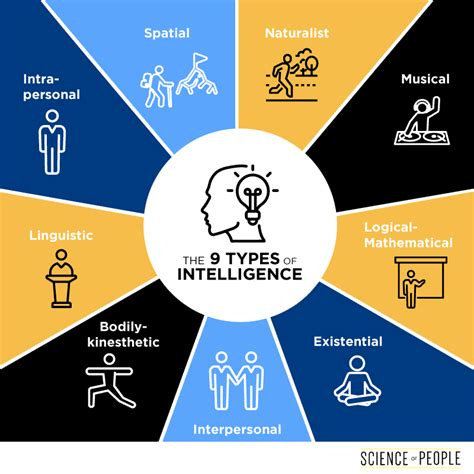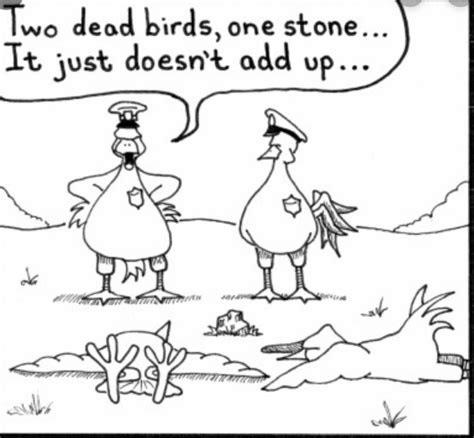With that aside, let me think a bit more about the problem.
What is the term “intelligence” good for?
No, I’m not talking about secret services or my favorite oxymoron, “military intelligence.”1 I’d like to present a case for and against the imaginary or actual faculty that the word “intelligence” sometimes denotes, when talking about people who can solve problems quickly and efficiently.
Intelligence as a concept seems to be a not-very-intelligent “professional” construct, but it flatters the vain and the superficial, so it prevails. Anyone can act as a genius or a moron anytime; I know that from my own behavior. For this reason, I tend to jokingly say that I have an IQ of 360, and I tactfully omit the lower value, which is probably immeasurable.
So, being unable to define the term, psychologists compartmentalized it, and these days, they talk about various types of intelligence that, nevertheless, remain lackadaisical. Measuring “intelligence” usually produces inconclusive results, because the same person’s performance fluctuates from time to time, and because problem-solving in real life is hardly ever confined to a single field out of the following:
One can argue that the typology uses statistic probability, which I resent, because it goes against human dignity by turning persons into numbers. Knowledge is compartmentalized to make sure nobody knows much, and “experts” of domains nobody knows much about are created and promoted in order to contain opposing voices2.
When “intelligence” is measured, it’s usually in lab conditions without much of a threat, unless time running out to complete the test or some sort of rivalry provides sufficient stress for some to imitate real life, which only complicates the value of the results, as it introduces new, uncontrollable variables. Reacting in a stressful situation involves the whole person (fight/flight/freeze/negotiate), and there is no consensus among “experts” on the processes that, through the observer’s eyes, results in the appearance of a person, at least for the senses.
For the person, caring for the term only provides an unnecessary loopback of self-reflection, which, ironically, only reduces intellectual performance as a redundant load on working memory. Those who are uncertain about who they are or those without sufficient amount of self-respect (and requiring external confirmation) tend to be a bit obsessed with the idea of their own “intelligence,” which doesn’t seem particularly intelligent to me. Publicly declaring how intelligent someone is is obviously a form of controlling the audience, because the automated reaction to having to listen to someone sooo miraculously “intelligent” is the immediate reduction of independent thinking and increasing reliance on the “intelligent” person’s output. After all, making someone else responsible for one’s decision poses a recurring temptation for those who don’t have the time, the brainpower, the knowledge, or the willingness to think. Another manipulative application of the term “intelligence” presides, when a superbly “intelligent” leader3 invites and embraces all members of the audience into a fellowship of “smart” people, which only requires to agree with the speaker. That’s one of the reasons why an author or a speaker using the word “we” can indicate the presence of ulterior motives4. Are people stronger together?
I wrote more extensively about the method in
As a matter of fact, at one point I even praised a new type of troll as “intelligent”:
Intelligent Trolls Are Now Saying Genetics Is a Scam
During the 12 months, I have encountered a number of trolls/bots/humans whose train had left the tracks. The latest ones are extremely smart and sophisticated. In this article, I’ll refer to such trolls/bots/humans as Entities, which I will abbreviate as EY.
This trolling employs the AI-generated method of achieving more than one results with a single action, a phenomenon I observed in
Four Birds with One Stone: The Derailment in Ohio
The body count is a bit off, but they are cops, after all. They don’t count what they can’t see.
and explained it a bit more in
The End Game Has Begun: The Mass Murderers Have Now Registered Their Signature
Yes, it is apocalyptic, and after years of preaching in vain, people are now catching my drift, but as usual, not far enough.
Thinking independently
Happiness doesn’t require much “intelligence,” yet happy people rarely prove to be particularly smart.
Is knowledge power? It certainly is to the extent that it enables the person to make independent decisions and look after those whom they care for and don’t have such a capacity. After all, it has been demonstrated on several occasions that an “intelligent” person usually solves complex problems faster and better than a “team” in which the same person is present.
In order to make clear-cut decisions, the person must be aware of the reasons why something can be considered a fact. In the judgment process, the same cognitive faculties are employed, and they represent a hierarchy. Knowing the hierarchy of the reasons why people consider something true can eliminate confusion in individual decisions by assisting with independent thinking:
What Makes You Think You Are Right?
Sometimes facts speak for themselves. Who or what is going to speak for you?
After that, prioritizing among problems is considered the next most important factor. Sometimes multi-tasking is necessary, and it adds to the complexity that some problems need to be addressed permanently and others are unique or transient. What I have seen is that a person’s disposition seems to determine the person’s ability and willingness to notice a problem, readiness to act, and persistence to complete the task. While disposition also rises from the moment, early-childhood conditioning seems the decisive factor, and only practice, discipline, and clear thinking can overwrite it, despite the disturbing feelings such acts can stir up within the person5. All my articles are meant to provide chances for such exercises that might eventually make practicing Free Will an option, when the time comes. Sadly, hardly anyone ever exercises Free Will, because it’s not all that simple:
https://rayhorvaththesource.substack.com/p/i-have-solved-the-question-of-free
While waiting for the globalist plan to materialize, preparations are not totally prohibited or hopeless, which doesn’t make Warren Buffet your best friend, even when it comes from him:
Not going to talk about esoteric concepts like inherited intelligence, either (inherited memory seems to exist at both the cognitive and the vegetative levels).
If someone is subjected to a leader, whose judgment cannot be questioned, but is invariably enforced, Stockholm syndrome can make the leader even more “convincing.”
The most powerful mode of mass manipulation creates a feel-good group from it audience by emphasizing an existential need or by conjuring one up out of nothing:
https://rayhorvaththesource.substack.com/p/the-most-powerful-mode-of-manipulation
This is a case of cognitive dissonance; the person must act against what has been working for him/her and his/her early-childhood surroundings.














The IQ test was invented by Alfred Binet (French, so you don't get to hear about this) to measure mental retardation in young children, preparatory to allocating them loving and caring foster parents. When the Eugenics Society, now named American Psychiartrists Association, requested to adopt his system, Binet was angry. You cannot measure intelligence, he spat, because it is not linnear.
Binet, like I, considered intelligence to be global (if one insists upon providing a shape for the unmeasurable) and expands with life experience. Ergo, I maintan there are 8 billion types of intelligence. And for the record, manifestly, I am not intelligent.
Anyway, the Yank Shrinks ignored his advice and used their own cerebral profile as the model for superior human intelligence. This was then applied globally to school class streaming and employment grading. The outcome is that the world is now run by idiots and psychopaths. (For details, read "Why academia is the new stupid" on substack oziz4oziz).
It's laughable to me that people believe in measuring intelligence. I consider it like measuring talent, there is no reasonable way or even reason to do so. No matter 'how high' it is, there will be deficiences in some other area or another. I like to remember, no matter our 'apparent worth' or lack thereof, we only add up to 1 person. 1 vote (ideally), 1 soul, 1 chance at life per birth. The rest is a pissing contest.